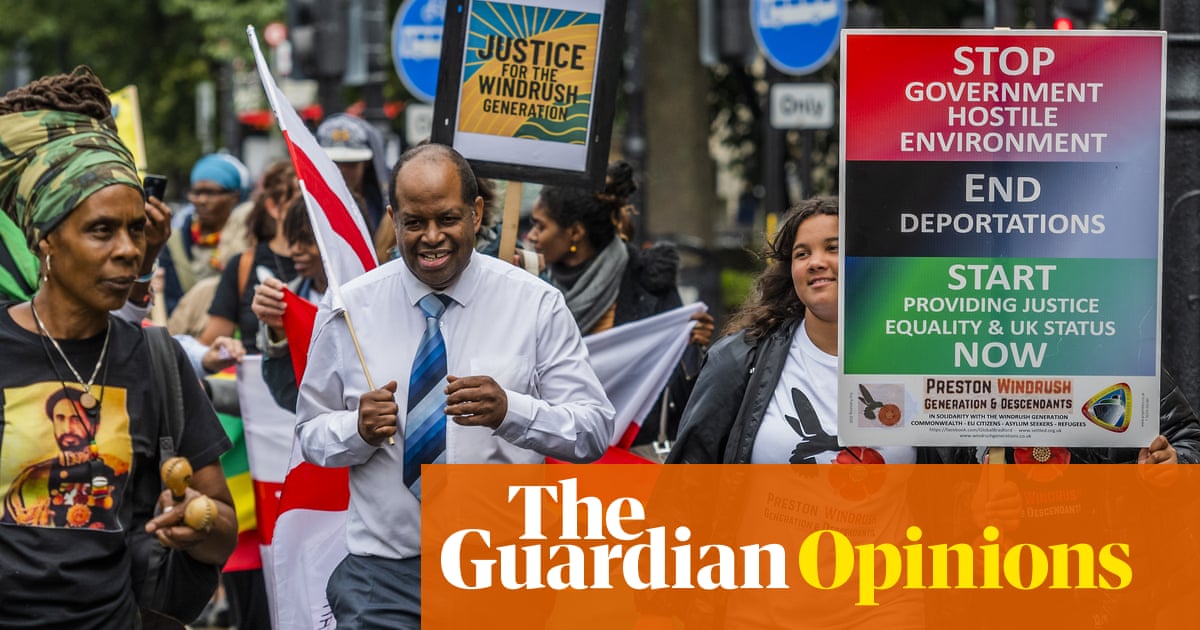
ou never forget the night you break into an airport. Even the smallest details stay with you: the snag of the fence on your coat as you climb through the hole you just cut; the feel of the cold, wet tarmac on the exposed skin of your neck; the light of the police sirens and the noise from the auxiliary engine; the joy of finding out the plane you were blockading isn’t going, and the roar of jubilation from your fellow protesters as you’re led away to a police van hours later.
I’ve patched together a thousand different memories from the night of 28 March 2017. That evening, a group of 15 protesters – myself included – gained access to a remote part of Stansted airport and locked ourselves around a plane that was due to deport 57 people from Britain to Nigeria and Ghana.
But of all the memories, one sticks out above the rest. It sits heavy in my brain, playing over and over on a loop.
On the drive to Stansted, we read out testimonies from some of the people who were supposed to be on that flight. One was from a Nigerian woman, a lesbian who was being held in Yarl’s Wood immigration detention centre. She’d been forced into a marriage, had kids and then fled Nigeria for the UK. Her children were staying with her sister and she was sending back money to help support them. Days before she was due to be deported, her ex-husband contacted her to say that he knew she was being returned, and that he’d be waiting there to kill her.
“If he kills me,” she wrote, “who will look after my children? They rely on me. They should give me and my children a life. They should spare my life because of my children. I am begging.”
Almost 18 months later, the 15 of us sat in the dock at Chelmsford crown court. The attorney general at the time, Conservative MP Jeremy Wright QC, had decided to charge us under the Aviation and Maritime Security Act 1990 – terror legislation that was first introduced in the aftermath of the Lockerbie bombing. After a gruelling 10-week trial, the jury reached a guilty verdict.
As they read it out, it felt as though the air left the room. I could barely process what was happening, and tried to grapple with the fact we could be imprisoned for years. I thought once more about that bus ride to the airport. Those words “I am begging” came flooding into my head. No matter what happened, what we did was right.
The support we received from thousands of people helped us narrowly avoid jail in February 2019. We appealed our conviction. Last Friday, the appeal verdict was returned. We were successful. Our conviction was quashed. In its judgment, the court of appeal stated that we “should not have been prosecuted for the extremely serious offence, because [our] conduct did not satisfy the various elements of the offence,” adding “there was in truth, no case to answer”.
After four painfully uncertain years, the ordeal is over (barring an appeal from the prosecution). But what we endured was nothing compared to those who find themselves at the sharpest end of the government’s “hostile environment”. Eleven people who were due to take that flight are still in Britain. At least one was identified as a victim of trafficking and given asylum. Another was here to see the birth of his son. And another person, having received their right to remain, is now working as a nurse.
None of this would have been possible if we didn’t act that night. But there are many more victims of trafficking and persecution who have been deported; many more whose lives have been lost or destroyed as a result of the hostile environment. There are vulnerable people currently being detained at Napier barracks in Kent, where a Covid-19 outbreak has reportedly spiralled out of control. In the middle of a pandemic, deportations flights are still taking place. People are still being swept up, brutalised and traumatised by this country’s repugnant immigration laws.
The verdict of our appeal poses significant questions about why the government chose to prosecute us under some of the most serious legislation in the first place. And it has, in no uncertain terms, vindicated our actions. Now more than ever, I’m determined to keep fighting to bring down the walls, to close the detention centres, and to stop deportation flights. Our appeal verdict served up a very small slice of justice, but those still caught up in the horrors of the hostile environment still wait for theirs.
Ben Smoke is a freelance journalist and activist












